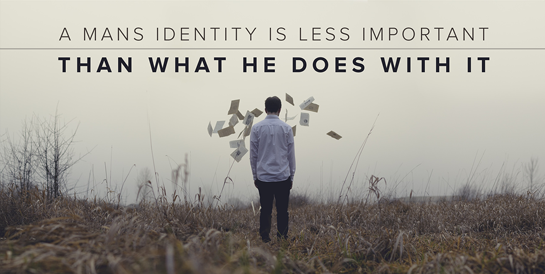We all love a good mystery.
There is something to be said for not knowing such a key aspect of a subject for which you otherwise retain a passionate foundation of knowledge. Whether you’re a distinguished cryptographer, or a small business owner who has just begun to use this strange new currency, we each share a level playing field when considering just how little we know about the person or group who started everything; the cipher known only as Satoshi Nakamoto.
Every few months, some new article rehashes the question of Bitcoins cultural identity crisis. The most recent of these is a New York Times article, written by Nathaniel Popper, which you can read
HERE. If you enjoy reflecting on Bitcoins mysterious origins, I would not dissuade you from reading it. Before you give yourself over to the call of Bitcoin’s greatest enigma however, lets take a moment to examine why the identity of its founder is inconsequential to its continued success and acceptance.
SATOSHI DID NOT WORK ON BITCOIN AS WE KNOW IT
In the 5 years since he last contributed to the Bitcoin project, Core Developers have rewritten the Bitcoin Source code so extensively, that almost nothing remains of Satoshi’s original work. Bitcoin has now been growing longer without Satoshi than with him. While he was surely a visionary, Mr. Nakamoto was not necessarily a master engineer. He relied closely on the company of people who were active within an already existing group of hobbyists and practitioners. It is many of these same people, such as Wladimir J. van der Laan, and Gavin Andresen, who have worked on Bitcoin’s Core Development from it’s earliest days. Dear losses have been suffered, with respect to the late Hal Finney, but Bitcoin’s developmental continuity remains nearly the same now as it was at its advent in 2009.
THE IDEA FOR DIGITAL CURRENCY HAS BEEN AROUND FOR DECADES
Be mindful, when romanticizing the world of innovation, is that it rarely matters who thought of an idea first. Credit goes to the person who builds and creates; who acts on their profound intentions, bringing them forth into reality. Satoshi Nakamoto deserves credit for giving digital currency it’s substantive form, but not necessarily as its progenitor. He built heavily on the shoulders of giants, and his respect for those who came before him may be partially responsible for his decision to remain anonymous. Eight separate sources are referenced at the conclusion of the Bitcoin white paper. Most important among this list are Wei Dei and Adam Back, both forbearers to the concepts of a cryptographically secured currency ledger and the proof-of-work algorithm, respectively. Correspondence between Satoshi and several of the people who’s ideas are referenced in the paper are publicly available online. Satoshi treats each of them with reverence, as should anyone benefitting from modern blockchain technology.
IT IS BETTER THAT WE DON’T KNOW
Bitcoin’s popularity has soared with an unprecedented rapidity since 2009. This is due in part to the laser-like focus on the actual breakthrough of digital currency, rather than on its creators. When the world talks about Tesla, or Apple, attention is duly paid to their beguiling leadership and business practices. When the world talks about Bitcoin however, it talks about the technology. There are no distractions from charismatic faces, humbly shrugging aside their praise and deflecting admonition. It is impossible to shy away from a broad technological discussion when debating the merits of Bitcoin, which has led to intense passion from those in the know, and a fervent education for the people within their circles. Bitcoin is succeeding because of its community. There is no company, there is no face. There is only technology and people. In this respect, anonymity may have been Satoshi’s greatest gift to the world.
Riddles are great fun. They give us something to talk about when there is nothing else to say. They supply the news media with an excuse to write about us every couple of months, and reignite the worlds still-cautious fascination with our intriguing little society. Satoshi Nakamoto is Bitcoins own personal D.B. Cooper. He is often what people gravitate towards first in conversation, once they find out that you are a part of this world; a real life conspiracy theory, ripe for speculation. It’s exciting, and thrilling, and scary to some. Most importantly though, it’s a sublime tool by which we can embolden fresh minds to deeper conversation and understanding about this revolutionary technology that will continue to change the world for decades to come. For that, we say Thank you, Satoshi. Thank you for the sacrifice of your anonymity. Where ever you are now, be happy.
Open your free digital wallet here to store your cryptocurrencies in a safe place.

2 thoughts on “Does Satoshi’s Identity Matter?”
GianoPosted on 10:48 am - May 30, 2015
In middle age we have the authority principle where it's the person to give credibility to what he says. Now presumably it's the opposite, also if still not in a lot of cases. With bitcoin finally is so, because not even can know what "Satoshi" is or do before.
Francesco SimonettiPosted on 5:32 pm - Oct 29, 2015
Giano, thanks for all the support. Looking forward to hearing much more from you.